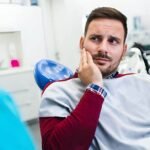Sport: a shield against side effects
Regular physical activity improves the effectiveness of cancer treatments. Patients who engage in a sports activity show better tolerance to chemotherapy and a significant reduction in chronic fatigue.
Sport helps maintain muscle mass and fight against cachexia, a syndrome that affects up to 80% of patients. The benefits are not limited to the physical: exercise also promotes quality sleep, stimulates appetite and strengthens the immune system.
In addition, sport fights effectively the psychological impacts of the disease. It helps reduce anxiety and depressive episodes while improving body image. The concentration required during exercise helps to take a step back from the concerns related to the disease. Group sessions provide valuable opportunities for socialization, helping to break isolation.
It is even possible to opt for supportive care. What is it exactly? They encompass a wide range of practices designed to mitigate the physical, emotional and psychological side effects of cancer and its treatments. Unlike therapeutic approaches aimed at curing the disease, this care emphasizes Overall patient well-being, seeking to improve their quality of life.
Adapted physical activity as a weapon against recidivism
Regular physical exercise considerably reduces the risk of relapse. Studies reveal a 49% reduction in the risk of colon cancer, 43% for breast cancer and 57% for prostate cancer. These results can be explained by various mechanisms: physical activity reduces chronic inflammation, regulates hormone production and improves the functioning of the immune system.
Maintaining physical activity also helps to Prevent deconditioning after treatments. Patients who remain active regain their abilities and autonomy more quickly. A better physical condition allows them to better withstand possible future treatments. Sport thus becomes a valuable tool for secondary prevention.
When to start and how to adapt your practice?
The start of a physical activity must always be done with the agreement of the medical team. Some contraindications may exist, such as severe anemia, extreme fatigue, active infections, or unstabilized bone lesions. An initial assessment makes it possible toassess the patient’s abilities and to define a personalized program.
The resumption of activity must be gradual and supervised by qualified professionals. The intensity and duration of the sessions are adapted to the state of fitness and objectives of each individual. Gentle activities, such as walking, yoga or swimming, are great places to start. The main thing remains to Find a fun activity, in order to promote regular practice.
Solutions accessible to all profiles
Many structures now offer specialized sports programs. The sessions can take place in a hospital setting, in dedicated associations or with trained professionals. This diversity allows each patient to Finding a suitable formula to his needs and constraints.
Sport is easily integrated into everyday life. Active walking, cycling or gardening are accessible alternatives. The recommended goal of 30 minutes of daily activity can be broken down into several short sessions.
Sustainable benefits for quality of life
Physical activity significantly improves the overall well-being of patients. It strengthens autonomy, restores self-confidence and facilitates the return to an active social life. The progress made encourages us to continue the effort and to Set new goals.
Sport also helps to regain control of your body after illness. It allows you to rediscover your abilities and overcome certain limitations. This physical reconquest is accompanied by a positive impact on morale. The sense of accomplishment nurtures a virtuous dynamic that supports long-term recovery.



